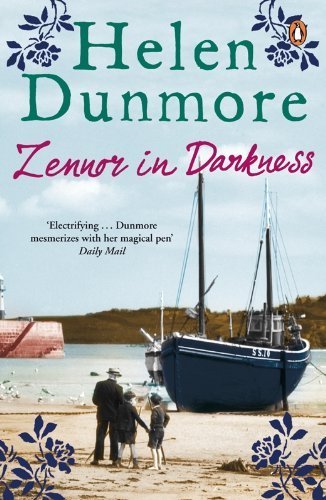What do you think?
Rate this book


315 pages, Paperback
First published February 24, 1994
Frieda does not yet realize how much she is hated. They would be glad to knock her over the cliff, and him too, if they could get away with it. But they do not quite dare; not yet.I thought Helen Dunmore was able to convey the tension that existed in the community, rather than that she was building tension in the novel. Despite this, don't expect too much plot here. It is more good writing and characterization than plot. The excellent characterization of the time period and setting should not be ignored. I note there were two somewhat explicit sex scenes, one of which as I read it I thought unnecessary. I'm not sure the explicitness was necessary, but it did provide insight into one of the characters, and that insight that *was* necessary in understanding the last 40 or so pages.

